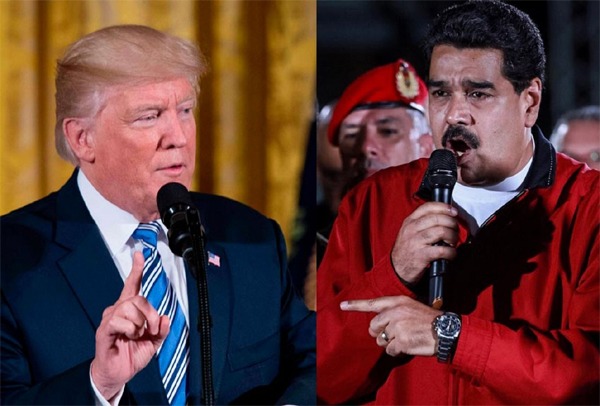Policy on Venezuela still not defined: experts . Trump used similar language about Canadian oil

Kate Wiston, Platss S&P Global
WASHINGTON
EnergiesNet.com 01 22 2025
President Donald Trump’s suggestion that US will “probably” stop buying oil from Venezuela is seen as a negotiating tactic, not necessarily policy, and experts are divided about whether Trump will revoke US licenses allowing specific oil companies to operate in Venezuela.
“I think the president was just upping the pressure on Venezuela in anticipation of the negotiations to come,” David Goldwyn, president of Goldwyn Global Strategies and chair of the Atlantic Council Global Energy Center’s Energy Advisory Group, told S&P Global Commodity Insights on Jan. 21.
While signing a slew of new executive orders on Jan. 20, Trump was asked by a reporter if he was still committed to Venezuelan President Nicolás Maduro leaving power.
Trump responded, saying, “We are going to probably stop buying oil from Venezuela, we don’t need their oil.” When asked whether it would be an embargo like his first term, Trump said, “It could be. But we don’t have to buy their oil, we have plenty of oil for ourselves. That will change Venezuela quite a bit.”
Also on Jan. 20, Richard Grenell, Trump’s envoy for special missions, said that “diplomacy is back,” under Trump. Grenell said he spoke to multiple Venezuelan officials that day and would continue meetings on Jan. 21, according to a post on X, formerly known as Twitter. “Talking is a tactic,” he said.
Average crude production by Venezuela’s state-owned oil company PDVSA and its foreign partners was 905,000 b/d in December 2024, up from 795,000 b/d in December 2023, according to estimated PDVSA production data reviewed by S&P Global Commodity Insights.
Goldwyn argued that Trump’s “America First” policy will focus on: reducing migration pressure on the US; avoiding re-introducing Iran, Russia and Venezuela to control of the Venezuelan oil industry; moderating US energy prices; and avoiding policies that create a humanitarian crisis.
“For that reason, I expect continuation of the current licensing regime supervised by Treasury, which advances all of those interests and minimizes revenues flowing to the Maduro regime in the context of a future agreement, which returns significant numbers of Venezuelans back to Venezuela,” Goldwyn said.
Maximum pressure undecided
But Ryan Berg, director of the Americas Program at the Center for Strategic and International Studies, took a different stance on the licenses. “I do think they will reverse the licenses, but I don’t think that means we automatically move back to a ‘maximum pressure’ campaign,” he said.
There are still competing factions seeking to shape the administration’s Venezuela policy, Berg said. “I am not hearing maximum pressure on Venezuela – not yet at least,” he said. “The licenses could be a negotiation tactic for greater leverage on migrants,” he said.
It seems the US government would like to put more pressure on the Venezuelan regime, but the Trump administration does not have a plan for Venezuela yet, said Rachel Ziemba, a senior advisor for political risk consultancy Horizon Engage.
Rather than a new policy, Trump’s offhand remark on Venezuelan oil may reflect his hope that boosting domestic production will mean that the US doesn’t have to import as much oil, if at all, Ziemba said. Trump used similar language on when discussing Canada, she noted.
When talking about Canada, Trump on Jan. 9 told reporters, “We don’t need their fuel. We don’t need their energy. We don’t need their oil and gas. We don’t need anything that they have.”
Trump on Jan. 20 said the US may place 25% tariffs on all imports from Mexico and Canada starting Feb. 1.
But it would be complicated to replace either or both Canadian and Venezuelan crude, Ziemba said. “Unfortunately for the US, domestic oil production grades are misaligned with many US refineries, which means they do need heavy and mid-grade oil that tends to come from Canadian bitumen and Venezuela,” she said.
spglobal.com, 01 22 2025











